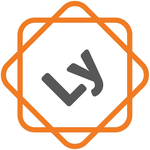Description

OneShield Policy

Eclipse
Comprehensive Overview: OneShield Policy vs Eclipse
OneShield Policy and Eclipse are both notable products within the insurance software industry, serving various needs related to policy administration and management. Here's an overview:
a) Primary Functions and Target Markets
OneShield Policy:
- Primary Functions: OneShield Policy is a comprehensive policy management platform designed to streamline product definition, policy administration, billing, claims, and reporting for insurers. It offers configurable policy processing workflows and sophisticated integration capabilities to support full policy lifecycle management.
- Target Markets: OneShield Policy primarily targets mid-to-large insurance carriers, MGAs (Managing General Agents), and insurance service providers across various sectors, including personal, commercial, specialty lines, and more.
Eclipse:
- Primary Functions: Eclipse is a software solution primarily aimed at policy administration, focusing on automating and simplifying the policy management process through efficient policy issuance, underwriting, and renewal processes. It often includes modules for billing and claims management as well.
- Target Markets: Eclipse is typically focused on smaller to mid-sized insurance companies and niche players that require robust policy administration capabilities without the complexity needed by larger enterprises.
b) Market Share and User Base
-
OneShield Policy: As a well-established player in the insurance software industry, OneShield Policy generally holds a significant market share among larger insurance carriers. It's known for its scalable and flexible architecture, which caters well to the complex needs of large enterprises and diverse portfolios. Its user base is substantial, with numerous implementations across North America and other regions.
-
Eclipse: Compared to OneShield, Eclipse tends to have a smaller market share, focused predominantly on small to mid-sized insurers. Its user base might be less extensive, but it remains significant within its target market due to its tailored solutions that effectively address the needs of its users.
c) Key Differentiating Factors
-
Scalability and Complexity:
- OneShield Policy is designed for high scalability and can accommodate the complex requirements of large insurance organizations with expansive operations.
- Eclipse, on the other hand, is suited for organizations looking for simplicity and ease of deployment, typically with fewer complex needs.
-
Customization and Flexibility:
- OneShield Policy offers significant customization options and allows users to configure processes to fit their specific business models and requirements, suitable for diverse and evolving insurance products.
- Eclipse might offer less in terms of customization, focusing more on straightforward and standardized implementations that are easier to manage.
-
Implementation and Integration:
- OneShield Policy is known for its robust integration capabilities and can be more complex to implement due to its comprehensive feature set that demands detailed integration with existing systems.
- Eclipse typically has a faster implementation timeline and may involve fewer integration challenges, which is appealing to smaller companies without extensive IT resources.
-
Technology and Innovation:
- OneShield emphasizes continuous innovation and updates to its platform, ensuring it meets the latest needs of modern insurers, incorporating emerging technologies such as data analytics and cloud computing.
- Eclipse may focus on stability and core functionality, appealing to companies that need reliability without the fringes of cutting-edge innovation.
In conclusion, while both OneShield Policy and Eclipse aim to serve the insurance sector efficiently, their offerings cater to different segments, defined by company size, complexity of needs, and preference for scalability and innovation.
Contact Info

Year founded :
Not Available
Not Available
Not Available
Not Available
Not Available

Year founded :
1999
Not Available
Not Available
United Kingdom
Not Available
Feature Similarity Breakdown: OneShield Policy, Eclipse
As of my last update, OneShield Policy and Eclipse (by Guidewire) are comprehensive insurance policy management systems designed to streamline operations for insurance providers. These platforms provide various core features, and a comparison can highlight both their similarities and differences. Here's a breakdown based on general industry features and known characteristics of these systems:
a) Core Features in Common:
-
Policy Lifecycle Management:
- Both platforms offer end-to-end management of the policy lifecycle, including quoting, issuance, endorsement, renewal, and cancellation.
-
Underwriting Support:
- They provide tools to aid underwriters in evaluating risk and making informed decisions based on data.
-
Billing and Financial Processing:
- Automated billing and financial processing features are included, ensuring timely premium collections and accounting.
-
Product Configuration:
- Both systems allow insurers to configure and manage a variety of insurance products without requiring deep technical intervention.
-
Integrations and APIs:
- They typically support integration with third-party applications and data sources, which is crucial for insurers looking to build a cohesive technology ecosystem.
-
Regulatory Compliance:
- Ensures compliance with state and federal regulatory requirements through regular updates and configurable compliance settings.
b) User Interfaces Comparison:
-
Design and Usability:
- OneShield Policy: Historically known for its flexible and user-friendly interface, with a focus on customization and ease of navigation for users across departments.
- Eclipse: Part of Guidewire’s suite, which is renowned for its modern and intuitive interface. Guidewire emphasizes user experience with sleek design elements and a focus on minimizing training requirements through intuitive interfaces.
-
Customization Options:
- Both systems offer significant options for customization, though the degree and accessibility of customization can vary. OneShield often highlights its ability to finely tune interfaces to specific user roles and needs.
-
Mobile Access:
- Both platforms likely emphasize mobile compatibility, though specific capabilities might differ in terms of full mobile applications versus responsive web interfaces.
c) Unique Features:
-
OneShield Policy:
- Business Rule Engine: Offers a robust business rule management system that allows insurers to define and manage business policies without needing IT intervention.
- Market Specialization: Known for offering specialized solutions for niche markets like Workers' Compensation and specialized underwriting rules.
-
Eclipse (by Guidewire):
- Cloud-First Approach: Known for its strong emphasis on cloud deployment, which can improve scalability and integration with other cloud-native and SaaS applications.
- Ecosystem Integration: Part of the Guidewire suite, which means tighter integration with other Guidewire products like ClaimCenter and BillingCenter, providing a more seamless experience across different insurance functions.
Both systems are powerful in their own right and are chosen based on specific business needs, technological ecosystems, and user preferences. While they share core functionalities as policy management solutions, the choice between them could depend on the particular advantages one might offer in terms of integration, specialization, or user experience.
Features

Customer Service
Billing and Payments
Policy Administration
Claims Management
Underwriting Management

Customization
Learning and Support
Performance
Development Environment
Collaboration
Best Fit Use Cases: OneShield Policy, Eclipse
OneShield Policy and Eclipse are both software solutions designed to serve particular needs in the insurance and policy management industry. Let's break down their best fit use cases:
a) OneShield Policy:
For what types of businesses or projects is OneShield Policy the best choice?
OneShield Policy is particularly well-suited for:
-
Insurance Carriers and MGAs (Managing General Agents): It's designed for small to large insurance companies and MGAs that require a comprehensive policy management solution. It offers capabilities such as policy administration, billing, claims management, and even automation of complex processes.
-
Complex Product Offerings: The platform is ideal for businesses with intricate products and multiple lines of business. It efficiently handles the configuration, rating, underwriting, and lifecycle management of policies ranging from simple to highly complex.
-
Customization and Scalability Needs: OneShield Policy is noted for its high level of configurability and ability to scale with a business as it grows, making it suitable for organizations needing tailored solutions.
b) Eclipse:
In what scenarios would Eclipse be the preferred option?
Eclipse by Guidewire, now known as PolicyCenter, is preferred in situations involving:
-
End-to-End Insurance Suite Requirement: When insurers seek a comprehensive, integrated solution that includes underwriting, policy administration, billing, and claims, Eclipse stands out with its cohesive suite of applications.
-
Large Enterprises: Eclipse is particularly effective for large-scale insurance firms that require enterprise-level performance and systems integration across numerous departments and operations.
-
Focus on Digital Transformation: Companies placing a strong emphasis on digital transformation and innovation could prefer Eclipse due to its robust capabilities for process automation and enhanced user experience for both employees and customers.
d) How do these products cater to different industry verticals or company sizes?
Industry Verticals:
-
OneShield Policy: It can cater to a broad range of insurance sectors, including property and casualty, health, life, specialty, and commercial lines, thanks to its adaptable framework that supports customization for various industry requirements.
-
Eclipse (Guidewire PolicyCenter): Its design supports extensive use in property and casualty insurance markets primarily. It's geared towards enabling insurers to adapt swiftly to market changes and regulatory requirements, supporting innovations in product offerings and customer engagement.
Company Sizes:
-
OneShield Policy: It’s versatile enough to serve mid-sized companies looking for specific, configurable solutions, as well as larger enterprises that need a robust, scalable policy management system to handle a high volume of transactions across multiple lines of business.
-
Eclipse: Generally targeted at large insurers, the solution is built to manage high transaction volumes efficiently and supports extensive customization and integration with other enterprise systems, making it ideal for organizations with substantial growth and innovation strategies.
By offering distinct capabilities tailored to different requirements, both OneShield Policy and Eclipse can effectively meet the diverse needs of various company sizes and industry sectors.
Pricing

Pricing Not Available

Pricing Not Available
Metrics History
Metrics History
Comparing undefined across companies
Conclusion & Final Verdict: OneShield Policy vs Eclipse
In evaluating OneShield Policy and Eclipse, it's important to provide a comprehensive analysis based on their features, benefits, and potential drawbacks to determine which product offers the best overall value.
a) Best Overall Value
OneShield Policy is known for its specialized focus on insurance policy administration, offering robust features customized for insurance companies. On the other hand, Eclipse generally refers to open-source software development tools, but if it's another specific insurance or business management solution (possibly Guidewire's Eclipse), it tends to offer a broader range of functionalities and integrations with other systems.
Considering all factors, if OneShield Policy's features closely align with your industry's specific needs for insurance management with dedicated support and streamlined processes, it may provide better value. However, if Eclipse's adaptability, its broader integration capabilities, and potential cost-effectiveness (especially for organizations already using the Eclipse IDE) fit your needs, it might be more valuable.
b) Pros and Cons
OneShield Policy:
-
Pros:
- Highly specialized for insurance industry needs.
- Comprehensive policy administration features.
- Strong customer support and industry expertise.
- Scalable with integrations specific to insurers.
-
Cons:
- May not be as flexible for non-insurance-related functions.
- Potentially higher cost for smaller companies or startups.
- Implementation can be complex and timely.
Eclipse:
-
Pros:
- Broad utility and flexibility, especially if it refers to a developer tool suite.
- Strong community support and plethora of plugins (if considering Eclipse IDE).
- Generally cost-effective, especially in open-source iterations.
-
Cons:
- Might require more customization for insurance-specific functionality.
- Can be overly generic if not tailored to the insurance industry.
- Integration and implementation could be complex depending on specific needs.
c) Recommendations
-
For Companies Focused on Insurance: Opt for OneShield Policy if your primary needs revolve around comprehensive insurance policy management and you value specialized support and a streamlined setup tailored specifically for your operations.
-
For Companies Seeking Flexibility and Integration: If your organization requires a more flexible setup with varied functionalities or if you foresee the need for expansive custom development work or are already ingrained in the Eclipse ecosystem, Eclipse could be more beneficial.
-
Decision Factors: Evaluate your company's strategic goals, existing infrastructure, and scalability plans. Consider trial periods or demos from both products to better understand their utility in your specific context. Depending on staff expertise, implementing a system familiar to or easily adaptable by your current team can also lead to a better overall user experience and ROI.
By weighing these factors, organizations can make a well-informed decision that aligns not only with current operational requirements but also future growth objectives.
Add to compare




